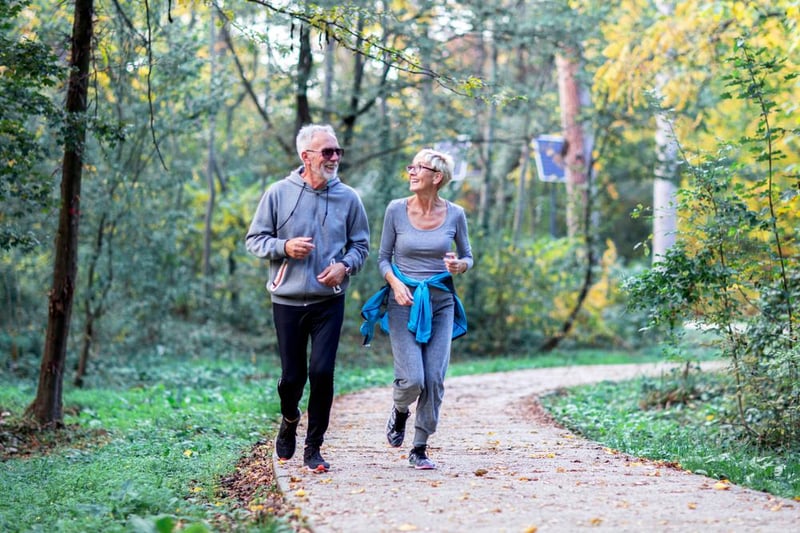155 SE 2nd Main St Hillsboro, OR 97123
Thank you for your patience!**
Now offering Flu Shots. Walk-ins available!
We also offer "Monoclonal Antibodies" treatment for patients with Covid-19.
Get Healthy!

- Posted July 20, 2023
Exercise and Cognitive Training Slow Thinking Declines. Vitamin D? Not So Much
As older people start to lose some of their mental abilities, regular exercise might slow the progression to dementia, a new study indicates.
With five months of physical activity, the mental ability of seniors with so-called mild cognitive impairment improved significantly, researchers in Canada report.
They also found that computerized training to improve memory added to the benefits of exercise. But taking vitamin D supplements had no effect on tests of thinking and memory.
"There is no cure for dementia, but lifestyle choices can help prevent it and partly counteract the impact of age and chronic diseases on brain health," said study co-author Louis Bherer. He's a neuropsychologist and senior scientist and director of EPIC Center at the Montreal Heart Institute.
Mild cognitive impairment is the intermediate state between normal brain aging and early dementia, the study authors noted. Research has shown this is the optimal time to implement preventive strategies and early treatment.
For the study, Bherer and his colleagues randomly assigned 175 men and women, average age 73, to exercise only three times a week; or to exercise plus vitamin D supplements or computerized cognitive training, or both for 20 weeks. The vitamin D dose was 10,000 IU three times a week.
The study found that 20 weeks of aerobic and resistance exercise along with computerized cognitive training, which works to improve memory and attitude, showed significant improvement of cognition in patients with MCI. However, "no significant effect of adding vitamin D to the exercise regime was found," the authors wrote.
"While exercise has been put forth for its potential protective effect on the brain and preventing dementia, cognitive stimulation added to an exercise regimen could boost cognition even in seniors already experiencing cognitive decline," Bherer said.
He noted that exercise indirectly helps prevent and manage chronic diseases like diabetes, high blood pressure, obesity and others, all of which affect the brain. Directly, exercise increases blood flow, including blood flow to the brain, improves vascular function and increases brain plasticity.
"In fact, some studies showed improved volume of the hippocampus, a key region for memory that is affected early as we age," Bherer said.
Moreover, it's never too late to start exercising to see a benefit. "Our study suggests that even frail older adults can benefit from three months of exercise and show cognitive improvement," he said.
Dr. Edith Burns is a professor of medicine and director of geriatrics and palliative medicine at the Zucker School of Medicine at Hofstra University/Northwell in Manhasset, N.Y.
"This trial adds to a pretty substantial body of evidence showing that physical activity reduces the risk of developing dementia," said Burns, who reviewed the study.
Although patients saw a benefit from computerized cognitive training, physical activity provided most of the benefit. "I think the biggest bang for the buck is regular physical activity," she said.
Burns noted that even the latest drugs touted to treat Alzheimer's disease are no more effective than a regimen of regular activity.
How exercise prevents or slows dementia isn't really known, Burns said. "We don't understand all the mechanisms yet, but we certainly have very strong evidence that it provides benefit in multiple areas."
The problem is motivating older adults to exercise, she said.
"The challenge is how do you get people to exercise and maintain it? When you have somebody who already has some cognitive issues that can be more challenging," Burns said.
But the effort is well worth it: "You see relative risk reduction in the onset of dementia of close to 40% in people who are regularly physically active," she added.
Burns believes that a healthy lifestyle plays a major role in preventing dementia in older age, perhaps surpassing the impact of genetics.
"As people age, genetics probably has less of a role in determining disease. It's lifestyle habits that can modify genetic risk," she said.
Burns urges everyone to be physically active. "It's the old saying, use it or lose it."
The report was published online July 20 in the journal JAMA Network Open.
More information
For more on physical activity and cognitive decline, visit the Alzheimer's Association.
SOURCES: Louis Bherer, PhD, neuropsychologist and senior scientist, director, EPIC Center, Montreal Heart Institute; Edith Burns, MD, professor, medicine, director, geriatrics and palliative medicine, Zucker School of Medicine at Hofstra University/Northwell, Manhasset, N.Y.; JAMA Network Open, July 20, 2023, online







